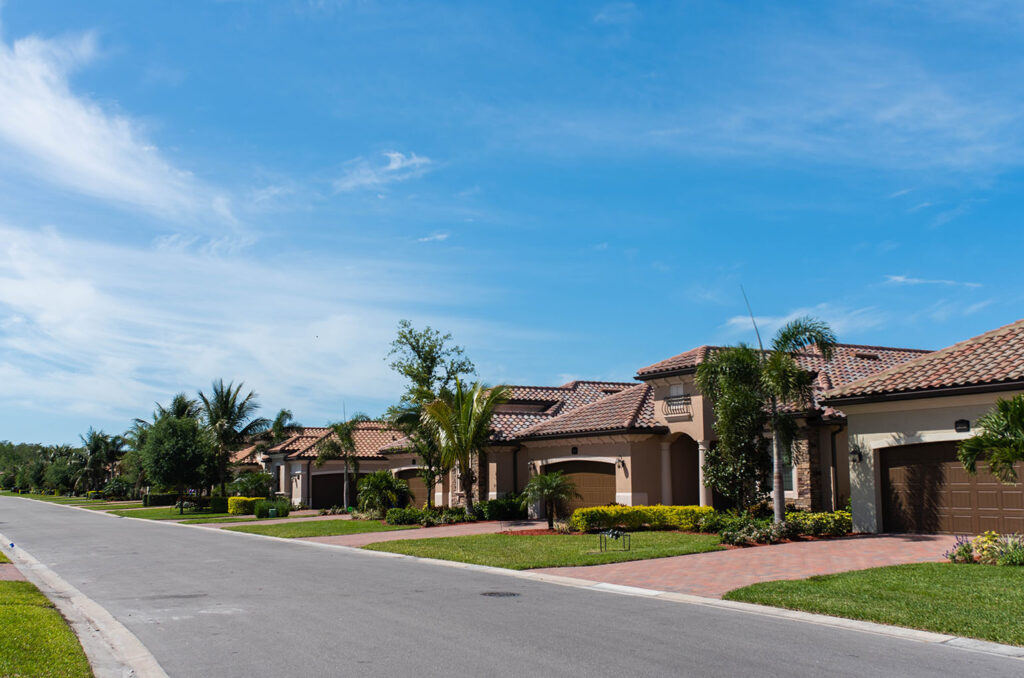Your mortgage is likely the biggest debt you’ll take on in your lifetime. But interest rates have been at historic lows, dipping below 3 percent in 2021 and edging upwards since, which solidifies a home loan as one of the least expensive ways to borrow money. So, you may be curious: Is it worth paying off your mortgage faster? And, if so, what are the best strategies for doing so?
There are pros and cons to paying off your mortgage at a faster rate, experts say.
“When you pay your mortgage quicker, you save on mortgage interest charges and get debt-free faster,” says Dan Green is President at Homebuyer.com, a Chicago mortgage lender for first-time home buyers. “However, once you put money into your home, it becomes illiquid — meaning you can’t access it and spend it.”
If you plan to pay down your mortgage, it’s smart to open a home equity line of credit, Green says. That way, you can access your money in a pinch. After all, the last two years have shown us just how unpredictable life can be.
Also, if you’re nearing retirement, having a tax write-off from your mortgage can be helpful, which you’ll lose if you get your balance to zero, explains Steve Hill, lead mortgage broker with SBC Lending, which serves Southern California. He recommends checking in with your CPA to help inform whether an early payoff is a smart move.
Here, five savvy strategies for managing your mortgage and saving money on interest, according to experts.
1. Make Extra Mortgage Payments

Making an extra payment toward your principal balance as your budget allows can save you thousands of dollars over the life of your loan, explains consumer finance and money-saving expert Andrea Woroch. This makes sense to do if you recently got a raise, and have the wiggle room to increase the amount you pay toward the principal balance of your mortgage. “You’re already accustomed to living on your previous income, so it won’t be missed and will help you pay off your mortgage faster,” she says.
When you take this approach, you can tailor it to your budget so that you’re making anywhere from small extra monthly payments or big ones should you have the extra cash flow. Do make sure you note in your payment that it’s intended to go to the principal balance.
To demonstrate just how much extra monthly payments can save you, we’re going to use a $350,000 mortgage with a 30-year fixed rate at 3.25 percent. But you can use this calculator to plug in your own numbers and mortgage terms:
- An extra $10 a month would translate to $2,455.45 in interest savings and trim three months off your mortgage.
- An extra $50 a month would translate to $11,685.25 in interest savings and trim one year and six months off your mortgage.
- An extra $100 a month would translate to $22,018.81 in interest savings and trim two years and 10 months off your mortgage.
- An extra $250 a month would translate to $46,945.23 in interest savings and trim six years and five months off your mortgage.
- An extra $500 a month would translate to $75,528.63 in interest savings and trim 10 years and 6 months off your mortgage.
Keep in mind: Making extra payments is all based on your individual budget, Hill says.
“The first step is to work up a budget and find out what you can afford,” he says. “It’s great to pay off your loan in 15 years, but not if you end up avoiding doing the things that make life enjoyable.”
2. Pay Your Mortgage on a Biweekly Schedule

One strategy that finance experts love? Use the biweekly method to pay down debt because it can amount to a 13th mortgage payment every year, but is spread out over the year, which makes it feel easier on your budget.
“The more frequent you pay to lower your principal, the less interest you’ll owe going forward,” explains mortgage and finance expert Andrew Lokenauth. That’s because you’re paying down the principal balance more frequently and less of your payment is going towards interest, he explains.
Check with your lender if you’d like to be set up on a biweekly payment plan, and make sure there are no prepayment penalties.
3. Refinance
Among homeowners with a mortgage they’ve had since before the pandemic, 74 percent hadn’t refinanced despite historically low rates, according to a 2021 survey from Bankrate.
While interest rates have been at historic lows, experts predict they’ll continue to climb this year. While it’s not too late to refinance, Mayer Dallal, managing director with mortgage lender MBANC, suggests using a refinance calculator to determine if it will make a substantial difference in your monthly payment or payoff time. “If you already have a decent interest rate on your mortgage—say 3 percent or so—there are investments that can yield a far higher return than paying off your mortgage early, as appealing as it may be to be debt-free and own your home outright,” Dallal says.
You could also consider switching from a 30-year mortgage to a 15-year mortgage, which has lower interest rates, but higher monthly payments. A financial adviser can help you determine whether this is a good fit for your unique financial situation.
4. Consider Recasting Your Mortgage
The scenario: You got a recent performance bonus at work or an inheritance and want to make a lump-sum payment toward the principal balance of your loan. Your lender would then reamortize your home loan with the new, lower balance.
Unlike refinancing, your interest rate and terms remain the same, but you now have a new, lower monthly payment and more equity in your home.
5. Lower Your Homeowner’s Insurance

Many homebuyers roll their homeowner’s insurance into their monthly mortgage payment so if you can find a cheaper homeowner’s insurance rate, you can spend less on that portion of the monthly payment and put the money you save on that policy toward the principal balance each month, Woroch says.
Compare homeowner’s quotes using insurance comparison sites like TheZebra.com to get quotes from large and small providers so you get the best rate possible, she suggests.
“Increasing your deductible and bundling homeowners with your auto insurance policy are other ways to reduce your overall insurance payment,” says Woroch, who recently switched homeowner insurance providers and upped her deductible, helping her cut an annual premium by $1,100.
More from Better:
- This West Town Loft Home Is a Study in Minimalism and Texture
- Pre-Teen Mental Health and Social Media Use: 5 Tips for Parents
- 3 Experts Share Their Tips for Designing the Perfect Second Home

Brittany Anas is a freelance writer who specializes in health, fitness, and travel writing. She also contributes to Men’s Journal, Women’s Health, Trip Savvy, Simplemost, Orbitz, and Eat This, Not That! She spent a decade working at daily newspapers, including The Denver Post and the Daily Camera in Boulder, Colorado, and she is a former federal background investigator. In her free time, Brittany enjoys hiking with her gremlin-pot belly pig mix that the rescue described as a “Boston Terrier” and coaching youth basketball. She also works with domestic abuse survivors, helping them regain financial stability through career coaching. Follower her on Twitter and Instagram.

